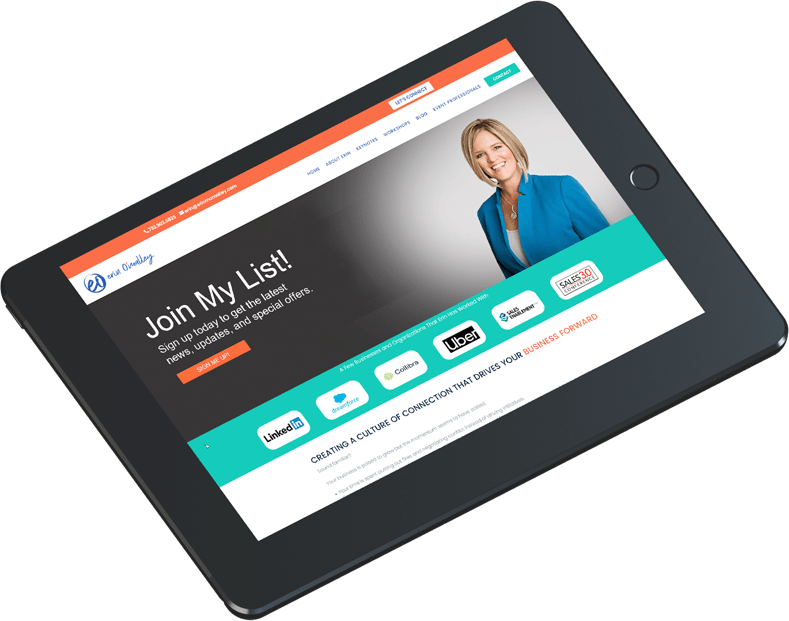Listening: How to calm down from an emotional response

Have you ever had that moment when you’re talking to someone and they start to say something and you think FOR THE LOVE OF ALL THAT IS HOLY DO NOT FINISH THAT STATEMENT.
Something like, “Listen. I am not a misogynist, but…” and then they proceed to be completely misogynistic?
This very scene played out on a walk and talk the other day. As soon as he started I could feel my heart start pounding and my blood start boiling and I started walking really fast and I was thinking, “How could he be so ignorant? How could he be so RIDICULOUS? How can I even listen to this man?”
Then I realized I wasn’t listening at all. My emotional response had taken over. I was near sprinting at that point (FYI I do not run. Ever.) and realized I had better check myself before I wrecked myself.
Check out today’s video to see how I switched from almost stroking out to reaching a new level of understanding.
As we continue to explore #empathy as a learnable skill, if you can’t really listen, you’ve got nothing.
Here’s the transcript of the video:
Hey everyone, how’s it going?
Empathy and effort. We’re working through some of the ways that
leading with empathy, having empathic conversations, showing up, wanting to understand people, takes effort.
Today we’re going to talk about one of the big areas where that effort is needed and that is listening. Listening, on a good day, and a good year is hard. Listening in 2020, I feel, has taken on a whole next level of excitement and effort.
I was on a walk and talk the other day talking to one of my dear friends, and he started off the conversation, well part of the conversation, by saying, “Now, I’m not misogynistic. But…”
I immediately felt my stomach flip and my shoulders go up. I was like, “No, like no, don’t say whatever you’re gonna say!” But he did. And then he shared some of his political views. And I remember thinking, “How
the heck can this guy think this way? How can someone be so ridiculous? How can someone be so ignorant?”
I was walking through the park–pretty much with that look on my face–(angry and over it!) and gesticulating. And I realized that, as my heart started pounding and my shoulders were up to my ears and I was walking really fast…that those were some of the indications to stop.
Stop right there, and pause, because I was reacting.
The “misogyny” comment had me going, already. And then I kept building and building and building and was having an emotional, reactive response to his part of the conversation. I stopped listening.
I had fully stopped listening and instead was, “How could he?! How could he?! How could he?!” Accusing him of all sorts of things in my head. And so what I want to share with you today is how I calmed myself down. How I switched up the question I was asking my head and now how I am still good friends with this man, because he is a good man. Although we clearly have some very different views.
So, I was asking all sorts of how questions which led to indignation and led to my heart to beat out of my chest. When I paused, and realized I was getting a little bit carried away, I remembered the two words that I should have had in my head, and then I switched to, which were “wonder” and “what.”
“I wonder what experience he had that made him think this way? I wonder what his background is, that could make him think this way? I wonder what news channel he’s getting his information from?”
When I replaced the, “How could he!!” with the, “I wonder what…” it opened up a more curious line of thought. It opened up more space. It calmed me down to be able to get curious and to follow up and to really try to understand his perspective and his point of view.
There’s my big tip for you today when it comes to the effort, and it does take effort involved in listening, especially to someone who might not have our exact point of view. (Who are the people that we actually should be listening to!)
If you find yourself getting an emotional response, notice if you’re
saying, “How?! How could they?! How could this be?!” And instead, switch out those how questions to: “I wonder what? I wonder what?” and see how that lets you pause. Lets you ground yourself. Lets you get curious about that person’s experience to be able to continue a back and forth conversation.
I wonder what you think about that little transition, that little shift from the questions that you might be asking. Let me know what you think. What gets you going when you’re listening that tends to get your
emotions up and tends to get you shut down? How can we possibly work around it?
We’ll talk to you soon!

Join My List!
TIPS ON CREATING A “CULTURE OF CONNECTION”
Are you tired of reading the same regurgitated information? Do you want to learn
fresh, new connection tactics that your competition doesn’t know about? Just click the button below to subscribe today to get the latest news, updates and special offers.


0 Comments